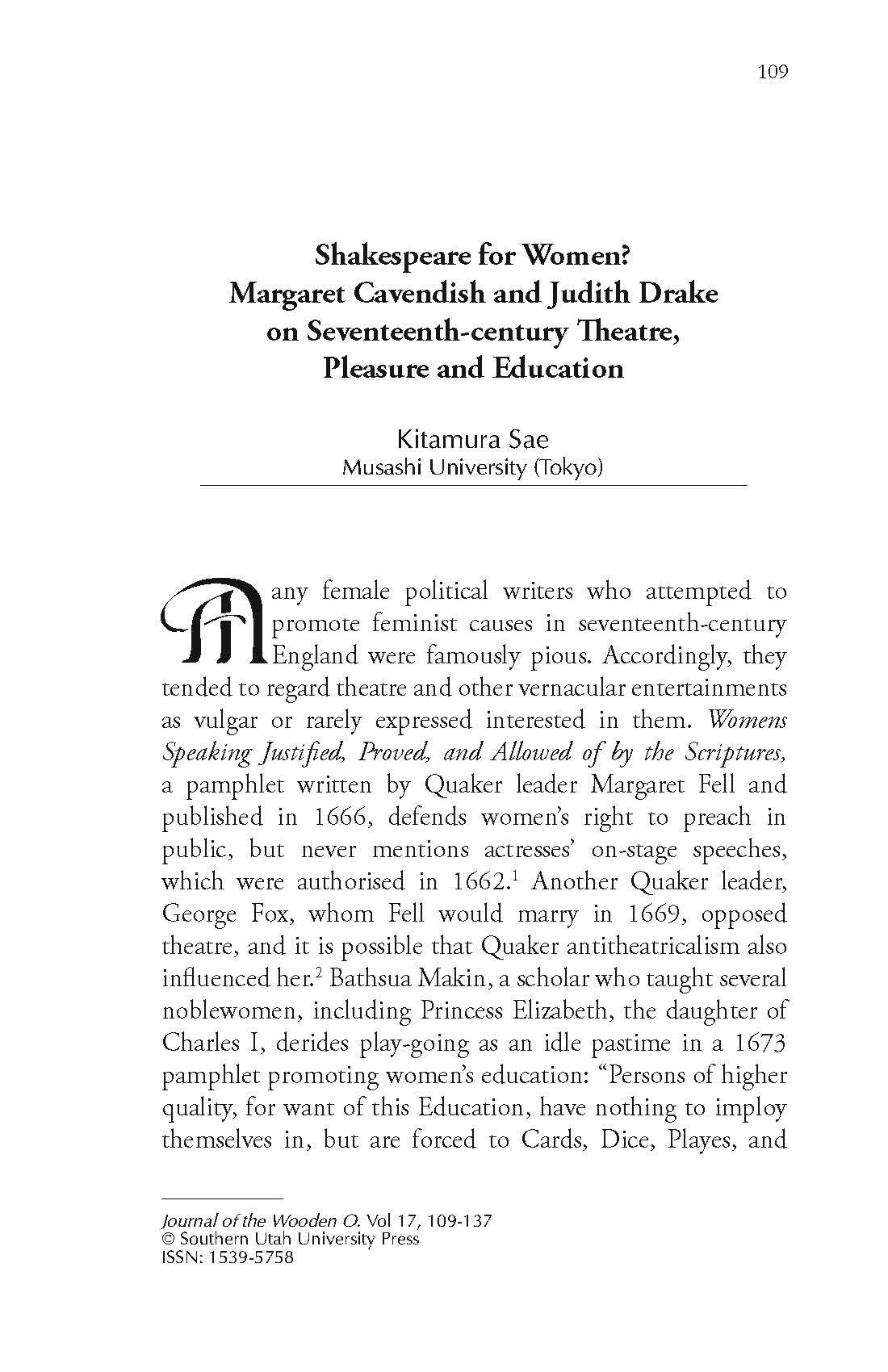Shakespeare for Women? Margaret Cavendish and Judith Drake on Seventeenth-century Theatre, Pleasure and Education
Main Article Content
Abstract
Many female political writers who attempted to promote feminist causes in seventeenth-century England were famously pious. Accordingly, they tended to regard theatre and other vernacular entertainments as vulgar or rarely expressed interested in them. Womens Speaking Justified, Proved, and Allowed of by the Scriptures, a pamphlet written by Quaker leader Margaret Fell and published in 1666, defends women’s right to preach in public, but never mentions actresses’ on-stage speeches, which were authorised in 1662.1 Another Quaker leader, George Fox, whom Fell would marry in 1669, opposed theatre, and it is possible that Quaker antitheatricalism also influenced her.2 Bathsua Makin, a scholar who taught several noblewomen, including Princess Elizabeth, the daughter of Charles I, derides play-going as an idle pastime in a 1673 pamphlet promoting women’s education: “Persons of higher quality, for want of this Education, have nothing to imploy themselves in, but are forced to Cards, Dice, Playes, and frothy Romances, meerly to drive away the time.”3 Despite this antitheatrical tendency, Makin uses a theatrum mundi metaphor to describe God’s creation: “But the Earth, the Theater on which we act, abideth forever.”4 This expression illustrates how deeply theatre was embedded in the culture of intellectual women in seventeenth-century England.
